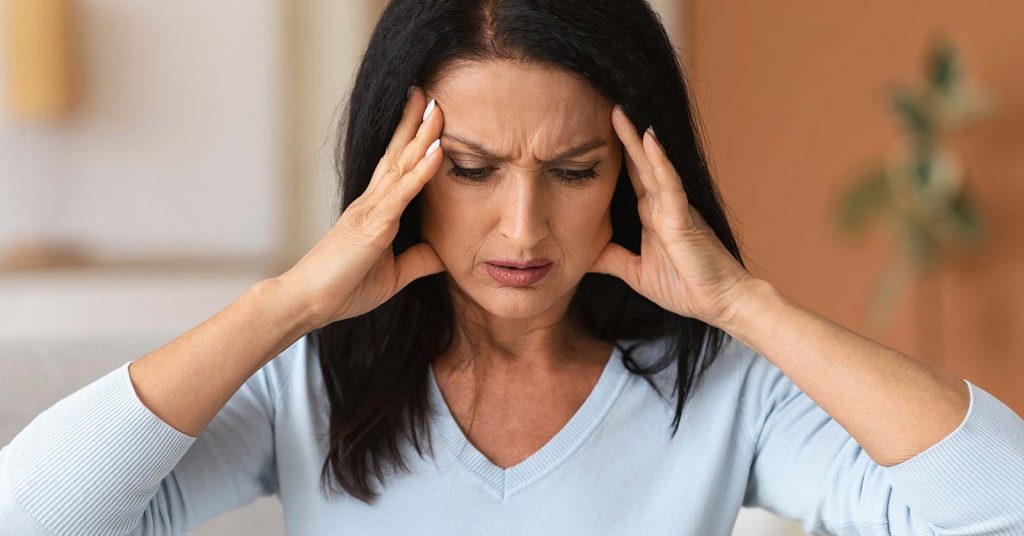
A migraine causes severe headaches in the form of throbbing pain or pulsing sensations. It can also cause nausea, vomiting and extreme sensitivity to light and sound. Migraines can last for hours or days at a time. Medication does help make the migraine less painful and might help prevent migraines too. The right combination of medicines, lifestyle changes and certain self-help remedies can help with migraines. (Mayo Clinic, 2020)
There are 4 stages of a migraine – prodrome, aura, attack and post-drome. Not everyone goes through all of these stages. (Mayo Clinic, 2020) A headache is one of the most common reasons for heading to the ER. Sometimes, it is possibly a migraine headache that does not go away with treatment and often, it is a symptom of some other medical condition. (Marmura, 2017)
Reasons to Seek Emergency Help
You should visit the ER or seek emergency help if you have unusual symptoms or any symptoms that are new to you. If your migraine does not respond to over-the-counter treatment or worsens, you should seek emergency help. (Marmura, 2017)
Seek medical help if your migraine headaches are also accompanied by the following:
- High Fever
- Muscle Weakness
- Convulsions
- Confusion, disorientation or, changes in awareness
- Neck stiffness
- Numbness or tingling sensation
- Sudden onset headache or a sudden change in baseline headache (Cherney, 2020)
Any new headache after the age of 50 or a headache after a head injury should also be taken seriously and medical professionals should be consulted. (Mayo Clinic, 2020) In the case of any medical history of heart disease, stroke, kidney or liver disease, a new or changing headache could be a life-threatening emergency. Do take extra precautions. (Cherney, 2020)
For many people, an aura occurs before a migraine headache begins. The aura can include visual disturbances like flashes, blind spots, numbness, tingling in one arm or leg, hearing noises, uncontrollable movements or jerks, and difficulty speaking. These migraines with an aura can increase the risk of a stroke in the future. (Mayo Clinic, 2020)
Migraine Triggers
Migraines often get triggered due to various reasons. Some of them are:
- Food & Drinks: Processed and salty food, aged cheeses, skipping meals or fasting might trigger migraines. Food additives such as MSG or sweeteners also worsen migraines. Drinking too much wine, alcohol or caffeine can trigger migraines. (Mayo Clinic, 2020)
- Stress: Too much stress at work or at home can cause headaches and migraines
- Hormonal Changes in Women: Before or during menstrual periods, pregnancy or menopause, estrogen levels fluctuate, which can trigger migraines. Medication such as oral contraceptives or hormone replacement therapy that causes changes in hormone levels can worsen migraines. (Mayo Clinic, 2020)
- Sensory Stimuli: Bright lights, strong smells and loud noises can trigger migraines for people. The sun’s glare, secondhand smoke, perfume, and paint thinners can induce migraines for some people. (Mayo Clinic, 2020)
- Medications: Vasodilators can worsen migraine headaches. Vasodilators are medications that open (dilate) blood vessels. They affect the muscles in the walls of your arteries and veins, preventing the muscles from tightening and the walls from narrowing. As a result, blood flows more easily through your vessels. (Mayo Clinic, 2020)
- Sleep Changes: Lack of sleep or too much sleep and even jetlag can aggravate migraines in some people.
- Weather Change: A barometric pressure or change in weather can induce a migraine.
- Physical Factors: Intense or heavy physical exertion, including sexual activities, can trigger migraines. (Mayo Clinic, 2020)
Migraines often go undiagnosed and untreated. (Mayo Clinic, 2020) While it is a manageable condition, knowing when to take it seriously and seek emergency help is a must. Migraines lead to about 1.2 million visits to the ER annually in the United States. (Cherney, 2020)
Taking Your Headache to the ER
Generally, visiting the ER means being given temporary relief for the pain with medication. However, if you get these headaches often, you should have a long-term preventive plan after consulting a medical professional and must have rescue medicine for emergency situations to avoid future visits to the ER. (Marmura, 2017) In the event of a migraine or unexpected or unusual head pain, don’t drive yourself to the emergency room. If you feel you may lose consciousness, dial 911 right away. Minutes matter when the possibility of neurological trauma exists.
Works Cited
Marmura, Michael. “When to Go to the Emergency Room for a Headache or Migraine.” American Migraine Foundation, 10 July 2020, americanmigrainefoundation.org/resource-library/when-to-go-to-the-er-for-headache-migraine/.
“Migraine.” Mayo Clinic, Mayo Foundation for Medical Education and Research, 16 Jan. 2020, www.mayoclinic.org/diseases-conditions/migraine-headache/symptoms-causes/syc-20360201.
Cherney, Kristeen. “When to go to the ER for Migraine.” Healthline, 24 April 2020, www.healthline.com/health/migraine/er-for-a-migraine
